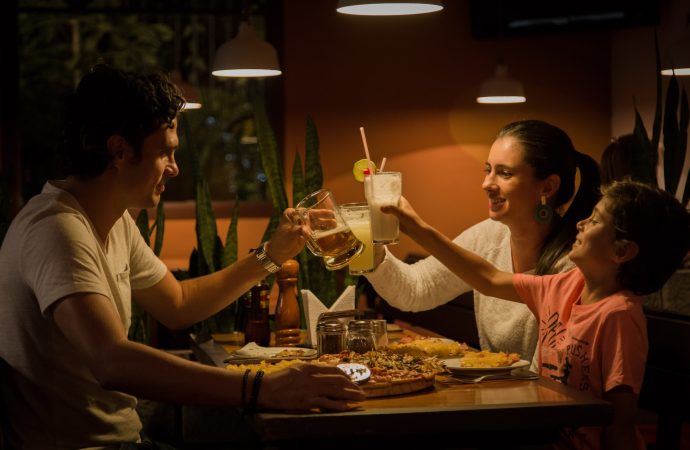Introduction: Food is a universal language that transcends borders, cultures, and languages. It holds within it the secrets of our identity, reflecting our history, traditions, and values. In this engaging review, we embark on a culinary journey to decode the language of food, exploring how the dishes we savor and the ingredients we cherish tell
Introduction:
Food is a universal language that transcends borders, cultures, and languages. It holds within it the secrets of our identity, reflecting our history, traditions, and values. In this engaging review, we embark on a culinary journey to decode the language of food, exploring how the dishes we savor and the ingredients we cherish tell stories about who we are and where we come from.
- Culinary Traditions: A Gateway to Identity
Culinary traditions are the foundation of our cultural identity. Each region and community boasts its unique culinary heritage, shaped by historical, geographical, and socio-cultural factors. From the aromatic spices of India to the bold flavors of Mexico, traditional dishes carry the essence of a people and their way of life. Exploring these culinary traditions allows us to delve into the history and identity of a community, understanding their customs, beliefs, and values.
- Ingredients: The Key to Cultural Significance
The ingredients we choose and the way we prepare them hold deep cultural significance. They reflect the availability of resources, the climate of a region, and the agricultural practices passed down through generations. From the staple grains of Asia to the hearty root vegetables of Northern Europe, ingredients serve as a link to our ancestral past, connecting us to the land and the environment from which our food originates.
- Rituals and Festivities: Celebrating Identity through Food
Rituals and festivities are occasions where our cultural identity shines through the dishes we prepare and share. Whether it’s a religious ceremony, a wedding feast, or a seasonal celebration, food takes center stage, symbolizing abundance, blessings, and community. The recipes passed down through generations carry the weight of tradition and act as a thread that connects us to our ancestors and their rituals.
- Fusion Cuisine: A Reflection of Cultural Exchange
In a globalized world, culinary traditions are constantly evolving through cultural exchange and fusion cuisine. The blending of flavors, techniques, and ingredients from different cultures creates new culinary narratives that reflect our openness to diversity and our willingness to embrace new experiences. Fusion cuisine is a testament to our ability to adapt, innovate, and appreciate the richness of different culinary traditions.
- Street Food: The Voice of the People
Street food holds a special place in the culinary landscape, often serving as a snapshot of a region’s identity and everyday life. From the bustling night markets of Southeast Asia to the vibrant food carts of Mexico City, street food embodies the authentic flavors and culinary ingenuity of a place. It is a reflection of the resourcefulness and creativity of the people who prepare and consume it, offering a glimpse into the heart and soul of a community.
- Food and Social Identity: A Mirror of Values
Our food choices can also reflect our social identity and values. Whether we opt for organic, locally sourced ingredients or embrace plant-based diets, our choices often align with our ethical, environmental, and health-conscious beliefs. Food becomes a tool for self-expression, allowing us to showcase our values and contribute to a more sustainable and equitable food system.
- Culinary Tourism: Exploring Identity through Taste
Culinary tourism offers a unique opportunity to explore and experience different cultures through their cuisine. By engaging in local food experiences, such as cooking classes, food tours, and farm visits, we can gain a deeper understanding of a community’s identity and way of life. Through these immersive experiences, we foster cultural appreciation, break down stereotypes, and build connections that transcend borders.
Conclusion:
Food is a powerful language that communicates our identity, history, and values. From the culinary traditions that shape our communities to the ingredients that carry cultural significance, each dish tells a story. By decoding the language of food, we can better understand ourselves and others, appreciating the richness of our diverse world. Let us continue to explore the secrets of identity hidden within the dishes we savor, celebrating the universal language that brings us together.

















Leave a Comment
Your email address will not be published. Required fields are marked with *